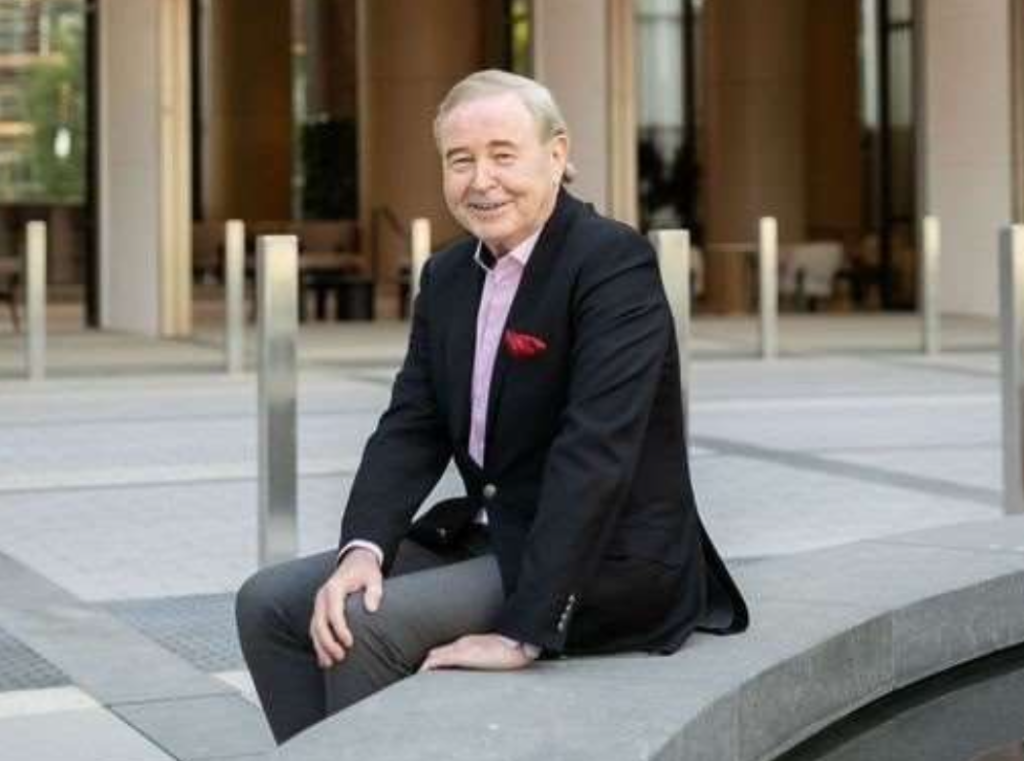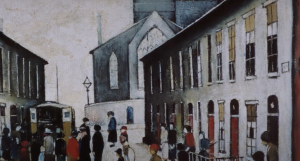
From growing up as a Headmaster’s son in Swinton, to managing some of the most recognisable luxury hotels across the world, ex-Managing Director of London’s Savoy hotel, Philip Barnes, speaks about his life growing up in Salford.
“I grew up with Salford culture and the reality of it is is that it’s a warm and humorous environment. There’s a real comfort with the north and I have a real affinity with it” said Philip, whilst stealing a moment to sit down during a three-week long house hunt through London.
Philip Barnes is an international hotelier, who has managed some of the most iconic accommodations worldwide, including London’s The Savoy, and Fairmont Century Plaza.
Philip was born in a house near Irlam O’ The Height, before moving to Swinton aged six, after his Father was appointed as Headmaster at St. Mary’s School in Swinton. A Lancashire family through and through, Philip’s Father was an altar boy at the church featured in L.S Lowry’s iconic piece, The Feaver Van.

At age 11, the family moved down south to a village in Sussex, after the industrial smog lead his sister to suffer from health complications. The move from the north was a huge adjustment for a young Philip. He said: “Moving down south was a massive culture shock for me as an 11 year old. Going from the city life, to the country life was quite fascinating.
“When we moved down south, my Dad and I had to loose our Lancashire accents, because it just gets beaten out of you. When my Dad would come back to Manchester, he would slip right back into his accent. You could take him out of Lancashire, but you couldn’t take the Lancashire out of him.”
In his last year at school Philip was presented with an opportunity for summer employment at a Country hotel that had just opened in the village his parents lived in.
After working his way through the hospitality ladder, and gaining qualifications in Hotel Management, Philip went on to work in hotels across the world, including London, New York, New Zealand, Los Angeles, UAE, Saudi, South Africa, Egypt, and Oman.
During his time as Managing Director of The Savoy hotel in London, Philip transformed its “boring” and “old-fashioned” reputation by starring in exclusive behind-the-scenes ITV documentary series, and watching it rise from #67 to #16 on TripAdvisor.
Despite joining Senior Management teams in some of the most exclusive hotels in the world, including Four Seasons, Philip feels his northern roots are a key aspect to the industry.
He explained: “When I was at The Savoy, I went to Salford for a course, and everyone asked “Where are you from”, and I said here. They said “From Salford to The Savoy”…I thought that was an interesting comment and I’ve never lost those roots, and I never want to. They’re a substantial part of who I am.
“When you grow up in an environment, like the north, where people look after people, it works for hospitality. It starts with looking after the team that looks after the guests. If you don’t have that insight into people, you can’t do a good job in a hotel.
“You aren’t in a boss-employee relationship, they become your family. I think that comes from the northern perspective of the family.
After creating global relationships with clients, guests, and colleagues, Philip still feels immensely proud of the city he grew up in, both the Salford of his childhood, and the city now. He said: “The thing I noticed, when I left as a child, the buildings were black from the pollution. When I returned, they weren’t black anymore. Everything was cleaned and fresher and it was a wonderful thing to see.
“When you go back up, you can’t help but slip back into the culture, people are so warm, so welcoming and friendly. The culture is such that people are who they say they are, and that’s what’s important in hospitality.
“It’s about creating an environment where colleagues know that you look at them as more than an employee. You can’t take care of people, unless you know you’re taken care of.
“Whether you’re in the most beautiful hotel in the world, or the ugliest hotel in the world, its about the people. That’s what dictates its success.”














2 Comments